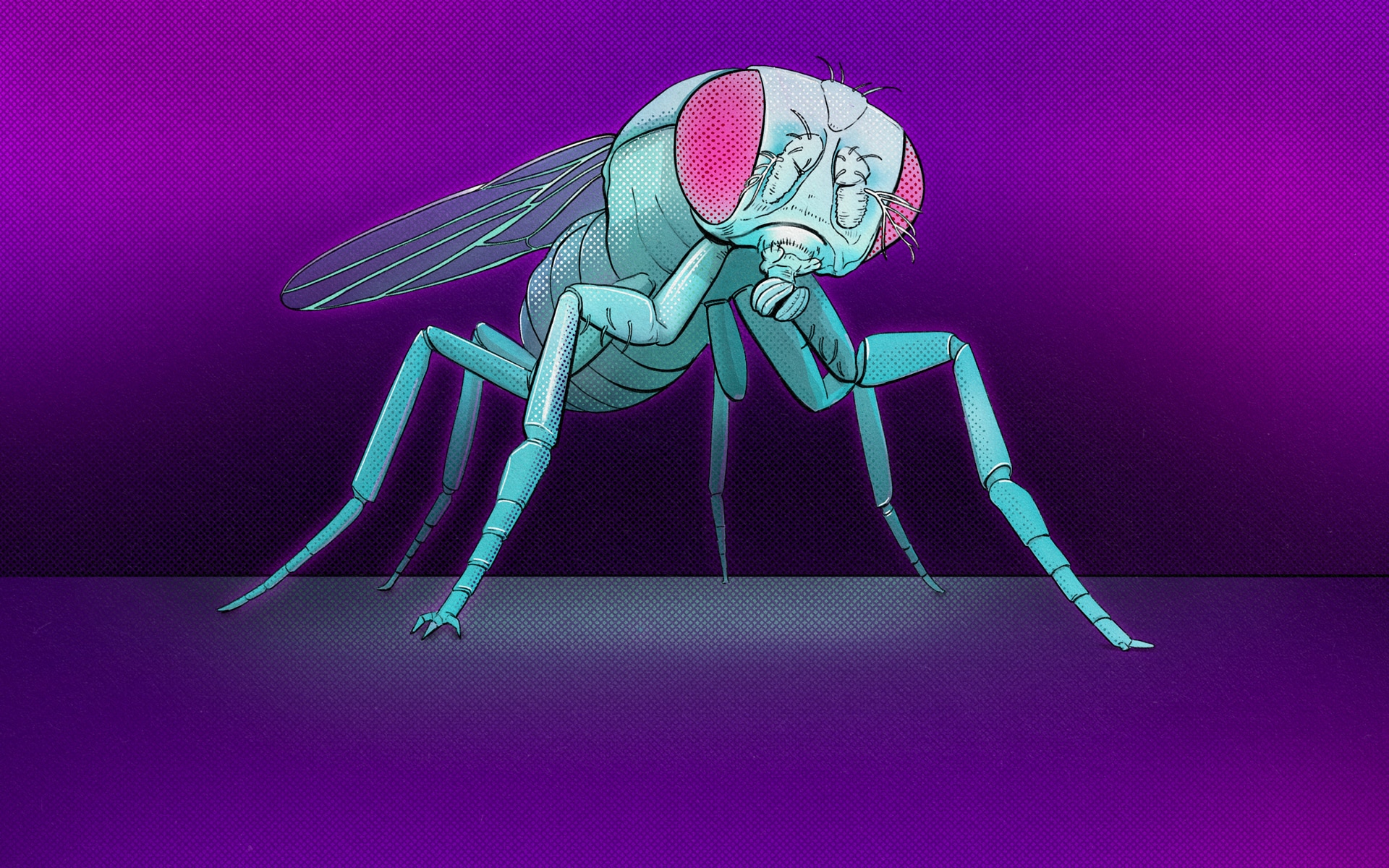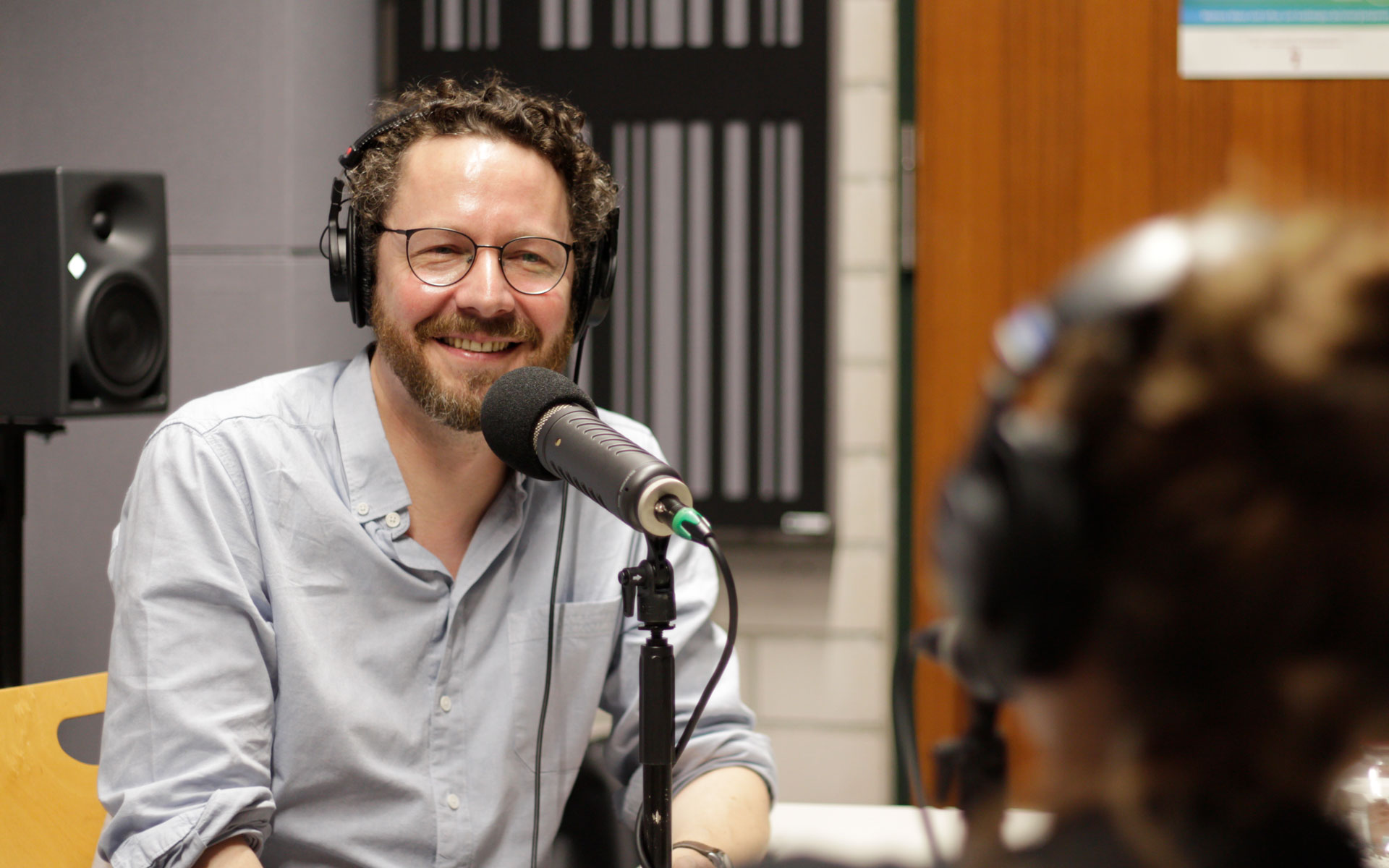When digital technologies like artificial intelligence (AI) meet people’s everyday lives, that’s when things get interesting for Christoph Bareither: “In a nutshell, my research is about trying to find out how people use digital technologies to shape and live their everyday lives”, he explains, “but also how these technologies come in with their own agency to shape these everyday lives in return.” He says he looks at both sides at the same time to create basic knowledge that will help us better understand our digital societies.
Christoph Bareither is Professor for Cultural and Digital Anthropology at the University of Tübingen, Director of the Ludwig Uhland Institute of Historical and Cultural Anthropology, and a member of the Cluster of Excellence “Machine Learning: New Perspectives for Science”. In the podcast “Key to My Research” from the University of Tübingen’s Excellence Strategy, he talked to host Jennifer Raffler about his research.
Generative AI at university: more than just copy & paste
Bareither’s research interests include generative AI and how it is used in an academic context. At the University of Tübingen, he is investigating how students and researchers use programs like ChatGPT, and how this use changes the way they create and work with knowledge. For instance, there is widespread concern that assignments and research papers are now largely written by programs like ChatGPT. However, in a survey with more than 500 participants conducted by his colleague Lukas Griessl at the University of Tübingen, as well as a follow-up ethnographic interview study, Bareither and his team found that students and researchers use generative AI in all sorts of different ways. For example, to have concepts or technical terms explained to them, to come up with new ideas, or to overcome writer’s block. But as helpful as these tools can be, Bareither says it’s crucial not to blindly trust AI technologies and to reflect critically on how we use them. That’s exactly what he hopes his research will encourage: “What we are trying to do is contribute to a future in which we make better decisions about how to live together with artificial intelligence.”
AI is changing Holocaust remembrance
Another project called “From the Era of Witness to Digital Remembrance” – where Bareither is collaborating with researchers from Ben-Gurion University in Israel – explores how different digital technologies are changing the culture of Holocaust remembrance.
Bareither and his colleague Berit Zimmerling are focusing on AI-supported virtual testimonies from Holocaust survivors. Since 2015, the USC Shoah Foundation has conducted multi-day video interviews with Holocaust survivors. This material has been used to train an AI-based language processing system. The idea behind it: even in the future, when the survivors are no longer with us, especially younger generations visiting museums should still be able to ask them questions and have an emotional conversation with them. The AI system makes this possible by selecting the most relevant answers and thus creating the basis for this interaction. “You have to assign a certain kind of agency to an AI system,” explains Bareither.
But what does this mean for cultures of remembrance? Bareither makes it clear that this question can’t be assessed in simple black and white terms. Through their ethnographic research, he and his team dive directly into the field, describing what happens in the dialogue between people in museums and virtual witnesses. This provides analytical insights, he explains, which can help them better grasp what is actually happening in these interactions. “In the future, this knowledge foundation could help us better evaluate how we want to deal with these kinds of projects, and also to better understand their broader impact on cultures of remembrance.”
Written summary of the podcast: Tran Trieu, Theresa Authaler
Here you can find all episodes of the podcast “Key to my Research”.
Project management: Excellence Strategy – University of Tübingen
Host: Jennifer Raffler
Production & Postproduction: changing time Fotiadis & Veit GbR, Center for Media Competence (ZFM)

“AI and Freedom” citizens’ council: encouraging the public to participate

